PsychNewsDaily Publishers
100 Summit Drive
Burlington, MA, 01803
Telephone: (320) 349-2484
PsychNewsDaily Publishers
100 Summit Drive
Burlington, MA, 01803
Telephone: (320) 349-2484
A new study looked at the long-term effects of skipping a grade in elementary school, and found no negative effects on kids' mental health.
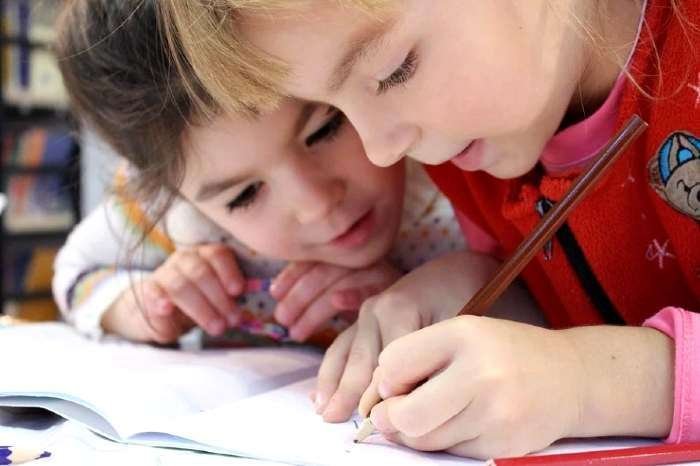
Skipping a grade in elementary school, also known as “academic acceleration,” involves academically gifted students skipping an entire year of school, or even several years.
Crucially, this allows bright students to move forward at their own pace. Even if it means leaving their age-matched peers behind.
Yet quite a few studies claim – incorrectly, as it turns out – that grade skipping harms the psychological well-being of these bright young students.
So now a new study has examined the long-term effects, and found only good things: researchers followed these children for 35 years, and found no effects of psychological damage at age 50.
In fact, the subjects’ psychological well-being was even above average. “Concerns about long-term social/emotional effects of acceleration for high-potential students,” the authors write, “appear to be unwarranted.”
Of course, this shouldn’t come as a surprise.
For decades, academic research has found grade skipping to be an effective way of addressing the learning needs of intellectually precocious kids.
These students can take in complex learning material very quickly, and often get frustrated if things move too slowly.
A 2016 review looked at some studies stretching back more than a century old and reached the same conclusion.
Yet many educators and counselors continue to believe that this practice has harmful psychological effects.
For example, a 2019 study in the Journal of Personality and Social Psychology claimed that “being in a low-achieving group relates to better emotional well-being compared with being in a group of high achievers.”
It also claimed that “placing individuals in high-achievement groups may incur emotional costs.”
The study looked at 1,636 intellectually gifted students who skipped at least one grade in the 1970s and 1980s.
All were in the top 1% of cognitive ability. About 220 of them even scored in the top 0.01%.
That means their average SAT scores were 700 (math) and 630 (verbal) at age 13(!).
The researchers found that grade-skipping students did not suffer at all in terms of psychological well-being at age 50.
And these results remained basically unchanged even when the researchers controlled for the students’ social-economic background.
Likewise, the study found that the accelerated children did not regret their grade-skipping decision.
Many of them actually wished that they could have accelerated more.
And indeed, several studies have found that skipping a grade in elementary school actually boosts students’ professional and creative achievements in adulthood.
Examples include the number of PhDs, academic publications, tenured professorships, and patents that they had received by age 50.
The authors suggest that instead of fretting about the negative consequences of grade skipping (which, again, don’t seem to exist), people should think about the possible negative consequences of not grade skipping.
These include boring kids by teaching them things they have already learned, or the potential loss to society of holding back these budding geniuses – fewer patents, fewer discoveries, etc.
So as the authors conclude, we should allow these students to pursue their own passions, at their own pace.
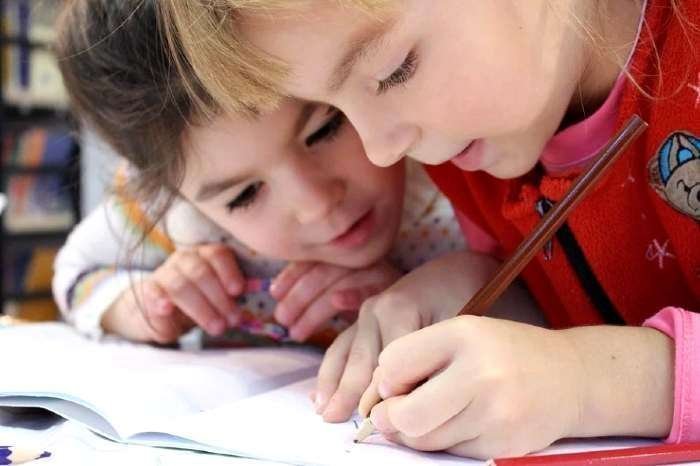
Thinking about grade skipping for your child or students? It’s a hot topic with a lot of debate. Some say grade skipping can offer gifted students the challenge they need, helping them stay engaged and excited about learning. Others worry about the potential downsides, like social adjustment issues or increased pressure.
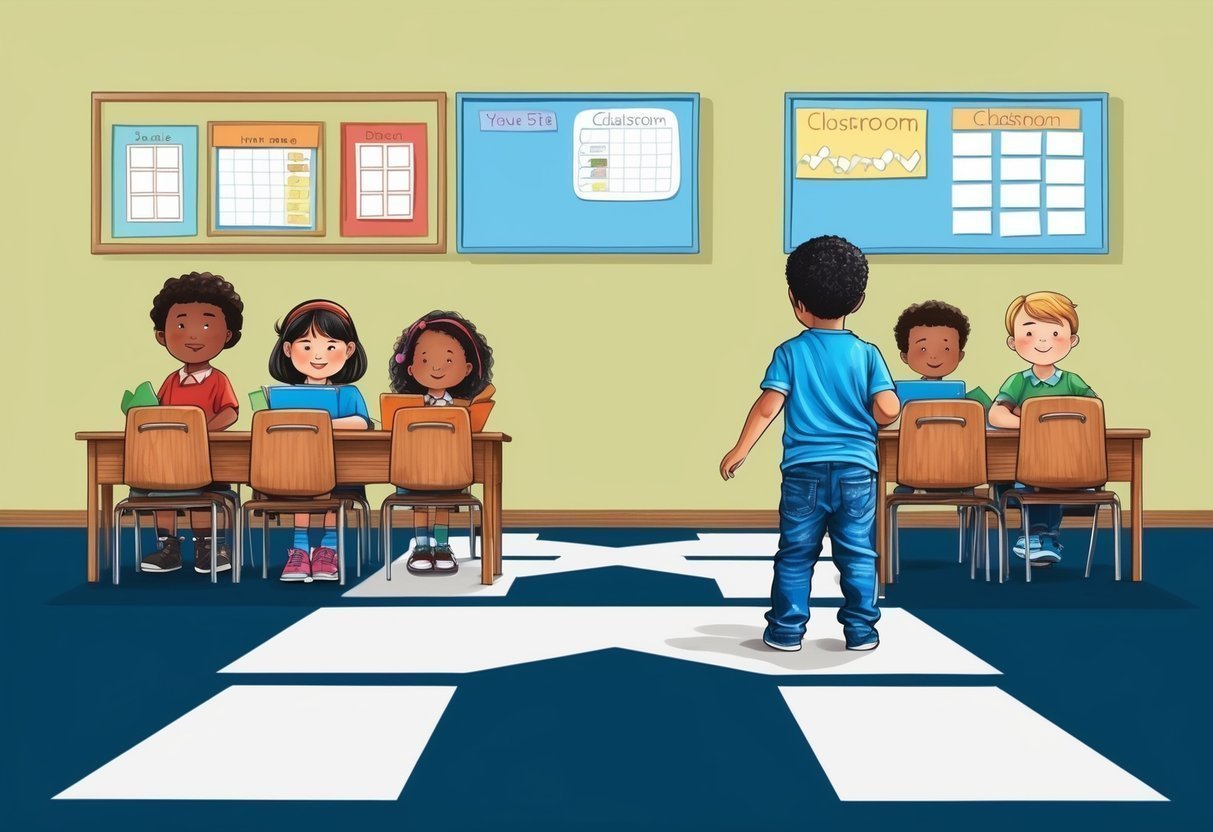
Grade skipping can be a great way to meet a gifted student’s academic needs, allowing them to move through material at a pace that suits their abilities. On the upside, skipping a grade can lead to more advanced learning experiences and help prevent boredom in the classroom. This acceleration can motivate them to reach their full potential more quickly.
On the other hand, there are challenges to consider. Some students might struggle with adapting to older classmates or feel pressured to perform at a higher level. Parents and educators should weigh the pros and cons carefully to decide what’s best for each individual student.
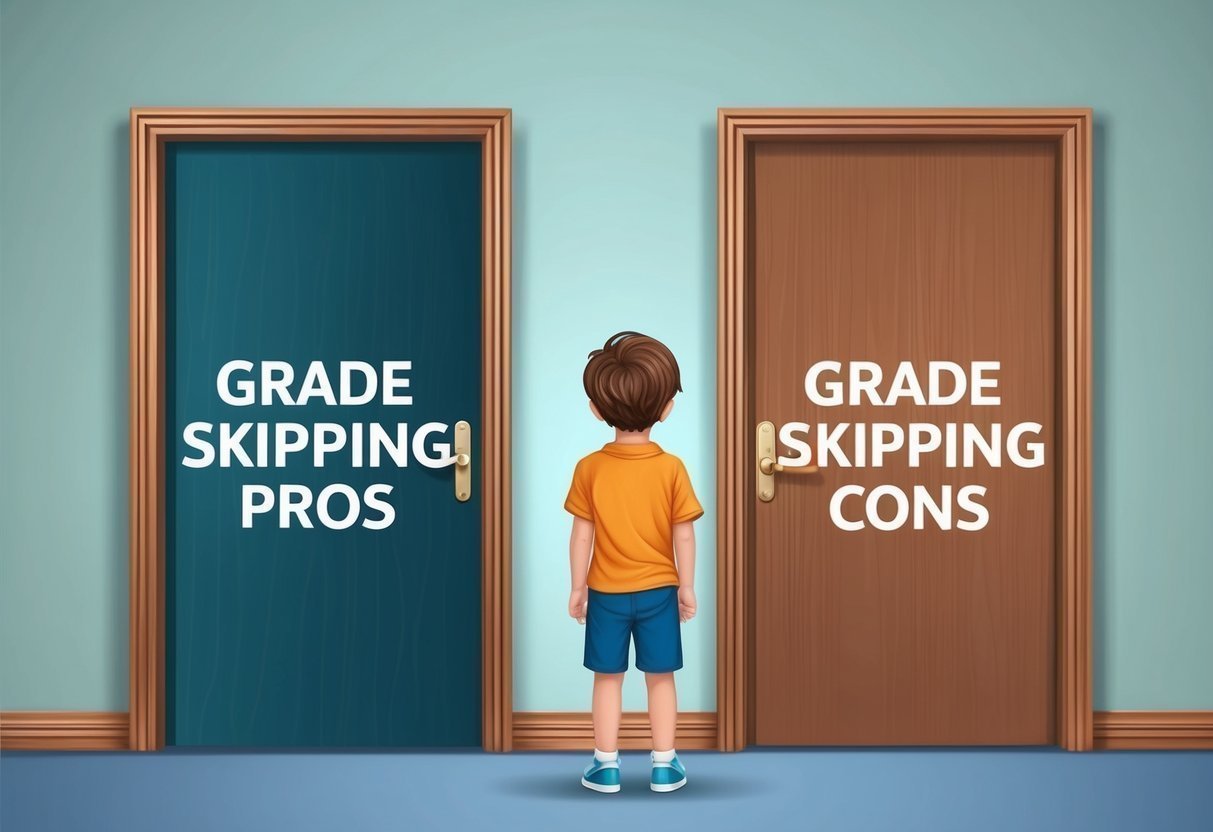
Grade skipping, also called academic acceleration, allows gifted children to advance more quickly through school. This can have significant benefits and challenges, shaping a student’s academic and social experiences.
Grade skipping means promoting a student to a higher grade than usual, bypassing the standard curriculum for their age group. This fast-tracks their education. Typically, this is used for gifted children who show high ability and mastery of material meant for their current grade.
Skipping a grade helps these students stay engaged and motivated. Without it, they might become bored and underperform. However, it’s crucial to assess a child’s emotional and social readiness, as the leap can be challenging.
Academic acceleration has long been a strategy to cater to the educational needs of gifted children. In the past, it was more common when fewer specialized programs existed for advanced students. With the development of gifted education programs, other forms of acceleration, like dual enrollment and advanced placement classes, have become popular.
Over time, studies have shown mixed results regarding its effectiveness. Some students thrive academically after skipping a grade, while others struggle socially or emotionally. It’s important to tailor the approach to each child’s unique needs. Research, such as studies on whole-grade acceleration, helps educators and parents make informed decisions.
Identifying candidates for grade skipping involves recognizing specific characteristics in gifted students and relying on thorough assessment and recommendations by educators to make informed decisions.
Gifted students often show early development in certain areas. They might read well ahead of their grade level and solve complex problems quickly. Strong memory and an ability to learn rapidly are common traits.
These children usually possess a deep curiosity and ask thought-provoking questions. They enjoy challenging tasks and often prefer working alone. Socially, they may get along better with older peers because they share similar interests.
Parents and teachers should note not just academic performance, but also emotional readiness. It’s essential to ensure the student can handle the changes that come with skipping a grade.
The school system plays a critical role in assessing if a student is ready for grade skipping. Teachers and school psychologists evaluate not only the academic strengths but also the emotional and social maturity of the child.
Standardized tests and performance assessments can highlight a student’s abilities. Educators might use tools like IQ tests and achievement tests. Observations in the classroom setting also provide insight into the student’s daily behavior and interactions.
Recommendations from teachers often consider the student’s current performance and potential challenges they may face with older peers. Engaging with parents in these discussions ensures all aspects of the child’s development are considered before making a decision.
Gifted children thrive best when their unique needs are continually addressed, and careful planning helps in finding the right educational path for each student.

Grade skipping can significantly benefit students who perform above their current grade level. It can offer them more challenging coursework and help them stay engaged in their education.
High-achievers often feel bored with standard grade-level material. By skipping a grade, they can face new challenges that better suit their abilities. This change can lead to increased motivation and a stronger interest in learning.
Gifted students often thrive when placed in an environment that matches their intellectual skills. They can interact with peers who share similar academic abilities, which helps in building a supportive learning community. In turn, this often leads to better grades and higher achievement levels.
Parents and teachers will also notice that high-achievers often feel happier and more engaged in school after skipping a grade. The opportunity to tackle advanced material can boost their self-esteem and academic confidence.
Skipping a grade can improve a student’s learning and overall academic performance. Studies show that students who skip grades often do well in their new grade level. They benefit from coursework that matches their learning pace.
When students are challenged appropriately, they are more likely to stay focused and perform better academically. This can result in higher test scores and better grades. They also develop stronger critical thinking and problem-solving skills, key aspects of academic success.
However, it’s important to monitor the new academic environment to ensure the student continues to benefit. Ongoing support from teachers and parents is crucial to help them adjust to their new learning demands. This ongoing support is essential to maintain their high performance.
Grade skipping can have significant effects on a child’s social and emotional well-being. It’s important to consider how moving ahead in school impacts their social adjustments and emotional maturity.
Grade skipping often places a child in a new peer group. This can lead to difficulties in social adjustment, as younger students may feel out of place with older classmates. They may find it hard to join established social circles.
Signs of successful social adjustment include establishing friendships and participating in group activities. Peer acceptance is vital for a child’s social development. However, being younger can sometimes make it harder to fit in. Age differences might impact their ability to relate to peers, which can affect their confidence and self-esteem.
Teachers and parents can help by encouraging social interactions both inside and outside the classroom. Participation in extracurricular activities can also foster better social skills. Families should monitor the child’s social experiences closely to ensure they are adjusting well.
Emotional health is another crucial factor to consider. While some children may thrive when challenged academically, others may feel stressed or overwhelmed. Being ahead in school might heighten these feelings, especially if they struggle to balance emotional maturity with academic demands.
It’s essential for children who skip grades to have strong support systems. Emotional maturity varies and a child might excel in subjects but lag in managing emotions. For instance, a younger student might not handle criticism or failure as well as older peers.
Parents should talk to their children regularly about their feelings and emotional challenges. Schools could provide counseling services to offer additional support. Teachers play a key role too, by being attuned to emotional cues and assisting students in finding healthy ways to cope. This attention helps ensure the child’s emotional health remains a priority.
Grade skipping can offer many benefits. However, there are also some challenges that must be considered, especially regarding the child’s maturity and social relationships.
One major concern with grade skipping is the potential for gaps in learning. When students skip a grade, they might miss key concepts or skills taught in that year. This can lead to struggles in higher grades where those skills are assumed to be known.
Another risk is the increased academic pressure. Being in a class with older peers can create stress and the fear of not measuring up. This pressure can sometimes lead to anxiety or a decline in self-esteem.
Lastly, physical and emotional maturity is an issue. Younger students may not be emotionally ready to handle situations that their older classmates face. This can create difficulties both within and outside the classroom, affecting their confidence and overall happiness.
Social relationships are an essential aspect of school life. Skipping a grade can put a child in a class where they have few friends initially. It can be challenging to form bonds with older classmates who may have different interests or social maturity levels.
Joining extracurricular activities can help in this situation. These activities provide a platform for the child to interact with peers of all ages, fostering new friendships and easing the transition.
Moreover, schools and parents can play a significant role in helping the child adapt. Regular check-ins with teachers and counselors can address any social concerns early on. Encouraging open communication can help the child feel supported and understood.
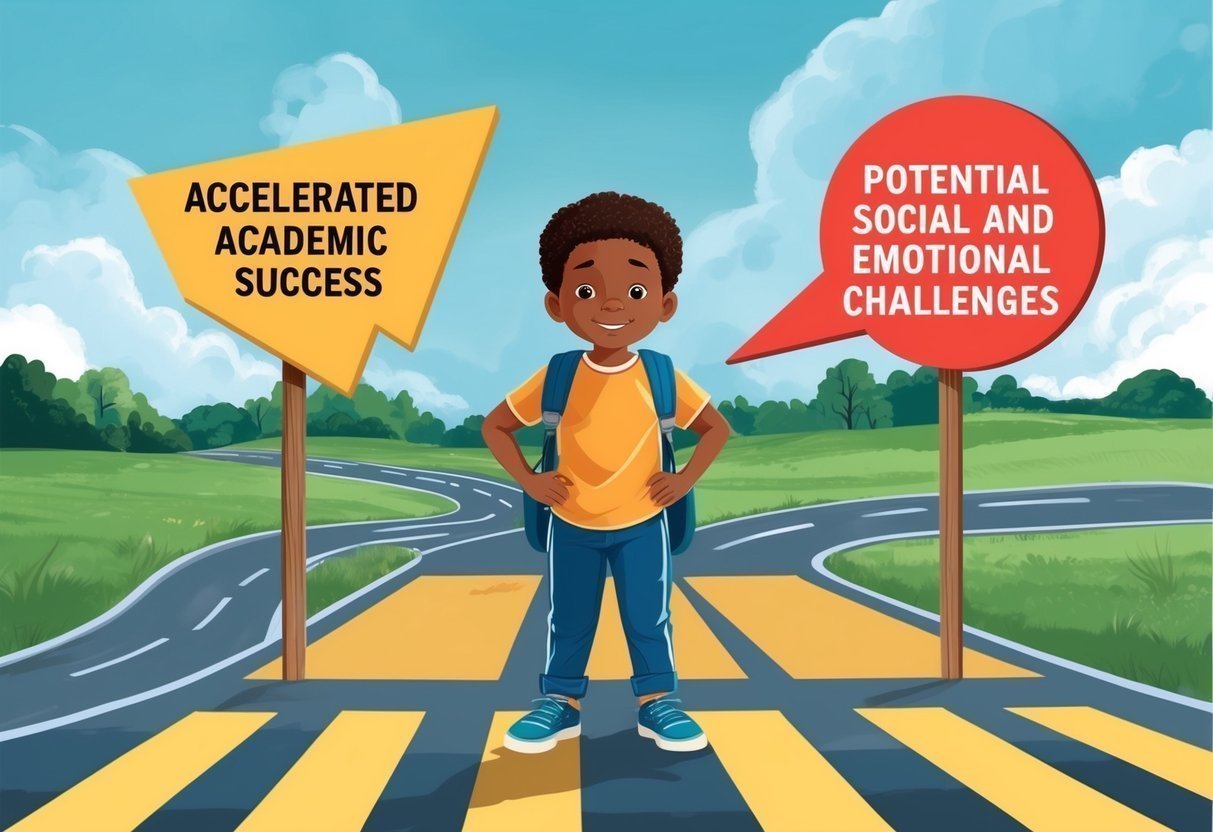
Grade skipping can have significant impacts on a child’s future. These effects span career opportunities, income potential, psychological well-being, and academic performance.
One potential benefit of grade skipping is entering the workforce earlier. This can lead to a longer career and potentially higher lifetime earnings. Individuals who skip grades might also advance quicker because of their early start. For example, they could complete higher education sooner and enter high-paying fields faster.
However, there are challenges too. Rapid academic progress doesn’t always mean readiness for adult responsibilities. Skipping grades might result in gaps in social skills, which can be critical in professional settings. In some sectors, social adeptness is as important as technical skills for career advancement.
The psychological impact of grade skipping varies. Some students thrive, showing higher levels of motivation and satisfaction. They often enjoy the academic challenge and the opportunity to meet intellectual peers. Over time, this can enhance self-esteem and drive in adulthood.
Conversely, grade skipping can sometimes lead to stress and anxiety. Being the youngest in a class might result in feelings of isolation or inadequacy. Social interactions can be tougher, impacting mental health. For academic development, some students may miss out on foundational skills, which can resurface as problems at advanced levels.
For more information on retention and other impacts on students’ motivation, see this longitudinal study.
Parents play a critical role in deciding whether their child should skip a grade and in supporting their child through the transition. Their involvement is key to making the process smoother and more successful.
Parents must weigh many factors when considering grade skipping. They should talk to teachers and school counselors to understand their child’s readiness. They need to consider their child’s academic performance, social skills, and emotional health.
Communication is essential. Parents should ask their child how they feel about skipping a grade. It’s important to listen to their child’s concerns and hopes. Making a decision without this input could lead to issues later on.
Parents also need to research and understand the long-term impacts of grade skipping. It’s not just about the next grade level but the years to come. Consulting with educators and other parents who have experienced this can provide valuable insights.
Once the decision is made, parents should focus on supporting their child through the transition. This can include preparing them for changes they will face in a new grade with older classmates.
Parents should encourage their child to express their feelings about the change. Keeping open lines of communication can help the child adjust better. Monitoring their academic progress and social interactions is crucial in the early stages.
Family activities can also offer support. Simple things like reading together or discussing school days can help the child feel more secure. Being involved and staying aware of how the child is coping makes the transition smoother.
Various strategies can cater to gifted students without grade skipping. These include differentiated instruction tailored to individual needs and special programs focused on acceleration.
Differentiation involves modifying lessons based on each student’s skills. Teachers can adjust content, process, and product to better engage gifted students. For example, they may provide more complex problem-solving tasks or allow students to explore topics in greater depth.
Individualized Learning Plans (ILPs) offer detailed educational roadmaps for each student. ILPs include specific goals and methods for meeting them. They often involve collaboration between teachers, parents, and students. This tailored approach helps maintain an appropriate level of challenge and growth.
Gifted programs are designed to meet the needs of high-ability learners. These programs might include separate classes, weekend enrichment activities, or summer academies. They focus on advanced topics and higher-order thinking skills.
Acceleration programs move students through the educational curriculum at a faster pace. This could mean skipping grades, subject acceleration, or dual enrollment in high school and college. Acceleration helps match the teaching pace to the student’s learning speed.
Both strategies and programs aim to keep gifted students engaged and challenged. They provide alternatives to grade skipping that can be equally effective.
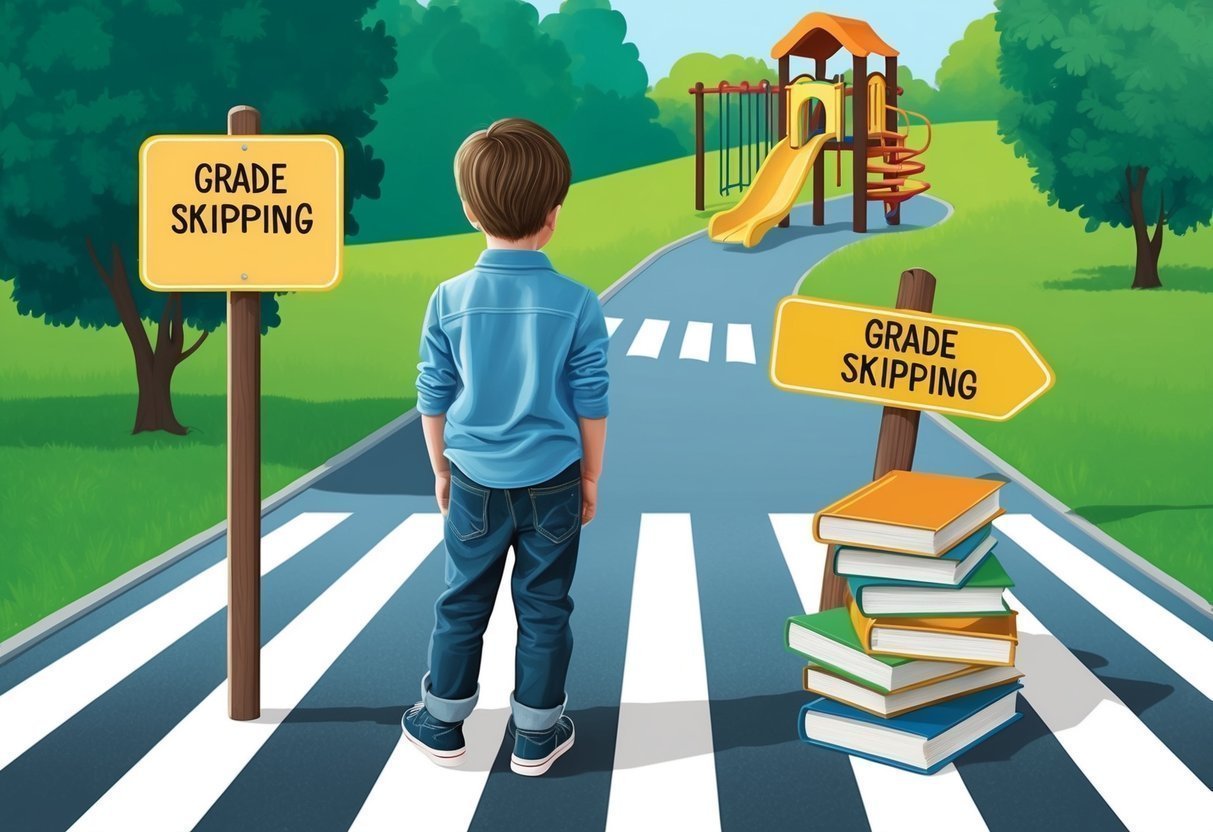
Grade skipping can lead to starting college earlier and encountering unique opportunities and challenges, including specific scholarship and entrance exam considerations.
Students who skip grades often enter college at a younger age. This can offer a head start in obtaining a degree and entering the workforce sooner. Some universities, such as Johns Hopkins University, may consider the maturity and readiness of these students.
Advancing early can be beneficial especially for those interested in STEM fields. A student with a strong aptitude for science and math might find better resources and advanced courses at a university level.
However, it’s also important to consider social aspects. Younger students might feel out of place among older peers. Academic advising can help mitigate these challenges by providing guidance on course selections and social integration.
Skipping grades may open up unique scholarship opportunities. Some scholarships target young achievers who have advanced quickly through their education. They can look into specific programs at Johns Hopkins University and other institutions that appreciate accelerated learning.
When it comes to entrance examinations, younger students must prepare rigorously. Tests like the SAT, ACT, and others require a high level of readiness. Students who skip grades might need to spend extra time preparing for these exams to ensure competitive scores.
Balancing academics, extracurriculars, and entrance exam preparation can be challenging but crucial for securing both college placement and scholarships. Parents and educators can support students by setting realistic goals and providing necessary resources.
When it comes to grade skipping, opinions vary widely among experts and the community. This section discusses both insights from educational researchers and feedback from students who have experienced grade skipping.
Educational researchers often explore the effects of grade skipping through studies and meta-analysis. According to a study on elementary principals, opinions vary even among school leaders. These studies often highlight both the academic benefits and social challenges that students might face.
Key points researchers focus on:
Students who have skipped grades provide valuable perspectives that can differ from theoretical insights. Some students report thriving academically but struggling socially. A report from NCBI notes that social difficulties can include feeling out of place among older peers.
Common themes from student feedback:
Feedback also varies based on individual personality and support systems, underscoring that experiences with grade skipping can be very personal.
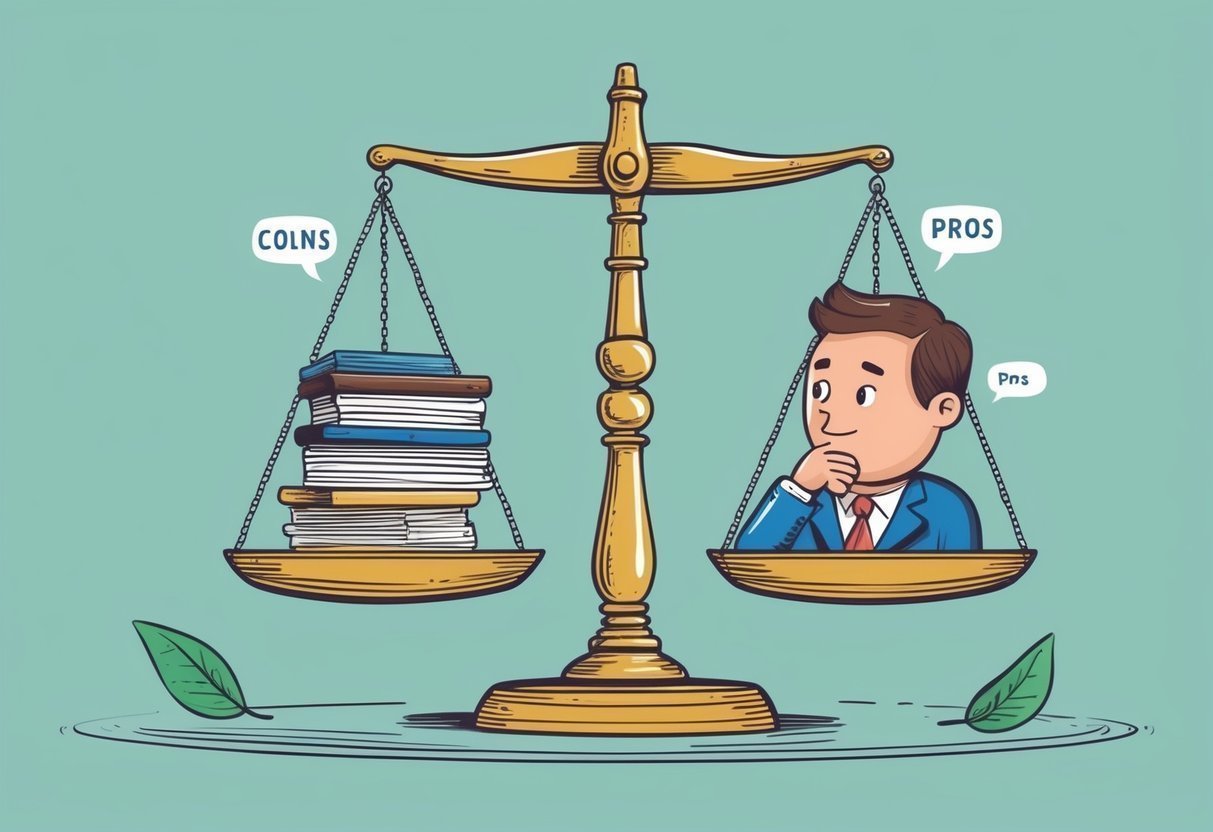
Parents and educators need to weigh key factors before deciding if grade skipping is right for a child. These include examining both the benefits and drawbacks, and understanding the process involved.
Pros:
Cons:
Assessment: First, the child will often be tested to ensure they are ready academically and emotionally. This might include standardized tests and psychological evaluations.
Meeting with Stakeholders: Parents, teachers, and school counselors will usually meet to discuss the child’s readiness. Each party will contribute their perspective on the child’s needs and abilities.
Planning: If the child is deemed ready, a transition plan is created. This will include subjects to focus on and how to address any potential gaps in learning.
Monitoring: Once the child has skipped the grade, ongoing support and monitoring are crucial. This helps ensure the child is adjusting well both academically and socially.
For more information on decision-making factors, see the detailed insights on knowledge and perceptions of school principals.